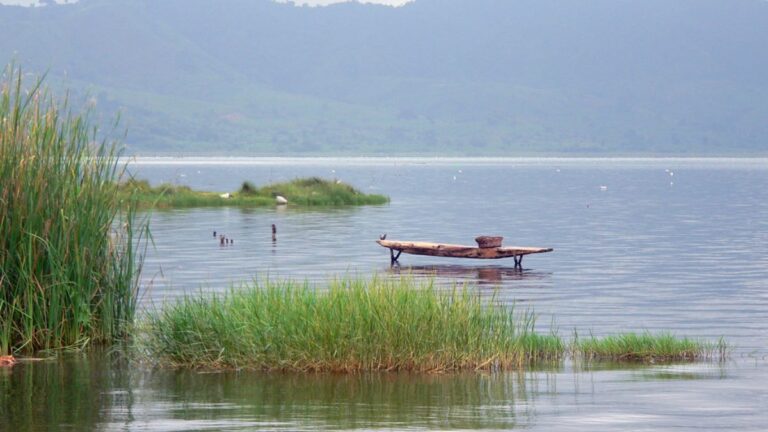- Login to ASPnet | Ghana Commission for UNESCO | Government Agency Responsible for the coordination of Ghana's contributions to and presence at UNESCO
Ghana’s Lake Bosomtwe Biosphere Reserve: Unveiling New Findings and Charting a Sustainable Future

The findings presented during the workshop revealed several significant trends that demand immediate attention Image Credit: Flicker
Workshop Validates Studies and Paves the Way for Updated Management Plan
In a significant step toward preserving the ecological richness of the Lake Bosomtwe Biosphere Reserve, the MAB National Secretariat, in collaboration with the Ghana Landscape Restoration and Small-scale Mining Project (GLRSSMP), recently organized a workshop for the validation of studies conducted to update the reserve’s CREMA Management Plan.
The workshop, which took place on the 26th of May, 2023, at the serene Kuntenase Methodist Church, provided a platform for various stakeholders to contribute their expertise and insights.
MAB National Secretariat: Diverse Stakeholders Unite for Sustainable Management
The workshop brought together a wide range of participants, including representatives from the CREMA executive committee, the Environmental Protection Agency, the Forestry Commission, the Water Resources Commission, the Fisheries Commission, and the planning departments of Bosome Freho and Bosomtwe district assemblies. The collective presence of these stakeholders underlined the shared commitment to protecting the unique natural heritage of the Lake Bosomtwe Biosphere Reserve.
During the workshop, the participants were presented with the findings of studies conducted in October 2022. These findings shed light on the changes that have occurred in the reserve since the last survey in 2014. The discussions that followed allowed the CREMA members to validate these findings, providing valuable insights into the current state of the reserve.
MAB National Secretariat: Highlights of the Findings: Paving the Way for a Sustainable Future
The findings presented during the workshop revealed several significant trends that demand immediate attention. First and foremost, the number of community members who are knowledgeable about the concept of biosphere reserves has tripled, indicating growing awareness and engagement. Additionally, the studies recorded 24 new faunal species within the reserve, underscoring its remarkable biodiversity.
However, concerning indicators of water quality, the findings painted a worrying picture. Anthropogenic factors were found to be the primary drivers of the lake’s deteriorating quality. Furthermore, both local and foreign fish species populations have significantly declined, signaling ecological imbalances.
Another concern that emerged from the studies was the expansion of farming activities, which often involve the indiscriminate use of chemicals near the lake’s shores.
The validation workshop represents an essential milestone in the process of drafting a new management plan for the Lake Bosomtwe Biosphere Reserve, in line with the recommendations of the MAB Excellence strategy. By actively involving stakeholders in the decision-making process, the workshop ensured that the updated plan will reflect their valuable contributions.
